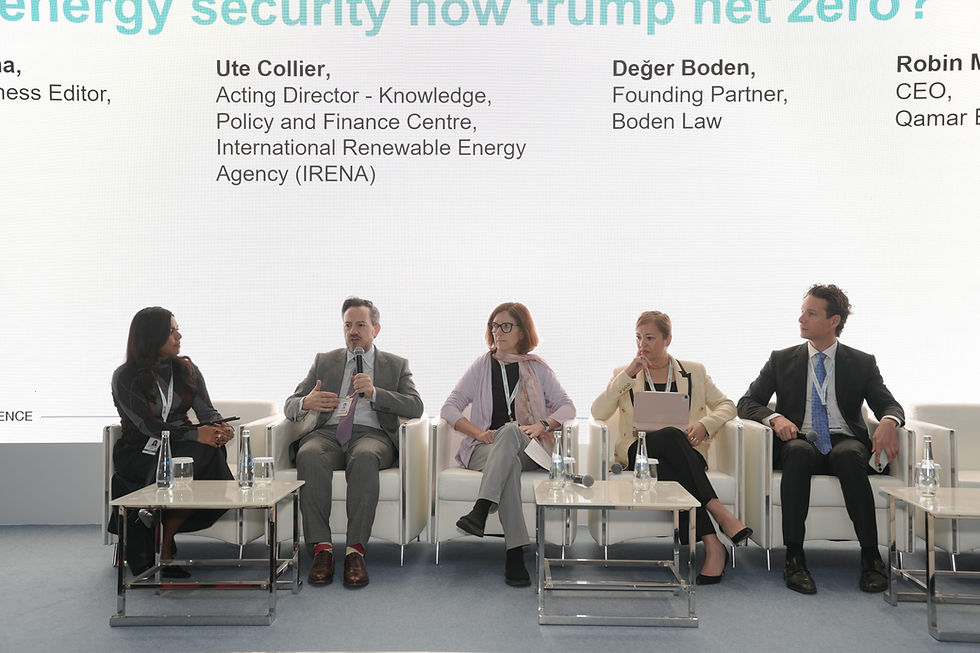Zest in the news: As COP28 approaches, 'clock is ticking' on Middle East clean energy cooperation
- Zest Associates

- Mar 13, 2023
- 2 min read
See below for extracts from Samuel Wendel's February 2023 Al-Monitor PRO Trend Report, including commentary from Zest's Managing Director Jeffrey Beyer. Click here for the full article.
Climate change is a global challenge, but MENA occupies a uniquely precarious position in this crisis: the region is simultaneously extremely vulnerable to climate change impacts while also home to prolific producers of the hydrocarbons fueling global emissions.
State of play: COP27 boosts MENA climate cooperation
The narrative has been shifting in recent years and 2022 saw regional cooperation coalescing around shared environmental challenges and the energy transition.
“The GCC Interconnection Authority has improved grid interconnectivity
between the Gulf countries, which reduces costs, increases resilience and will help the countries decarbonize their power systems,” said Jeffrey Beyer, managing director of Zest Associates, a Dubai-based sustainability-focused consultancy firm. Global players also want to facilitate regional collaboration through the MENA Hydrogen Alliance, a platform established in 2020 to bring together local stakeholders to help promote hydrogen projects that export to Europe.
Outlook: COP28 set to unlock further collaboration
Financing sustainable projects is a huge opportunity, which the region's sovereign wealth funds and oil and gas companies can target after a colossal capital infusion driven by high energy prices, said Beyer, who believes these financial resources should be invested in transition technologies and renewable energy, locally and internationally.
“I think sovereign wealth funds and energy companies have an opportunity to double down on clean technologies that will power us in the future, rather than investing in new fossil assets that risk being stranded in the future,” said Beyer.
Still, there are plenty of areas where regional stakeholders can expand cooperation, such as strategic investments, environmental diplomacy, joint scientific research and deploying innovative new climate technologies.
“More can always be done,” said Beyer, who highlights the potential of developing a regional carbon market, ideally one that could trade with other regional markets like the EU Emissions Trading Scheme.
A regional green taxonomy could accelerate intra-regional investment in sustainable projects, notes Beyer. “Working together to tackle opportunities like low-energy space cooling, arid agriculture and underwater conservation would be good opportunities for deeper coordination,” he said.
Key takeaways
The UAE is already flexing its might as a renewables investor and a champion of climate diplomacy. But keep an eye on Saudi Arabia. “Saudi Arabia's Middle East Green Initiative is the most ambitious regional effort to combat climate change,” notes Beyer.
After COP28 wraps up, the global spotlight will shift away from MENA. That’s when we’ll truly begin seeing how much real weight is being thrown behind these initiatives, with the coming period a pivotal moment for these green partnerships to make tangible progress. “Many of these efforts to improve coordination are relatively young,” said Beyer. “So it will take some time to see if they have a big real-world impact.”


Comments